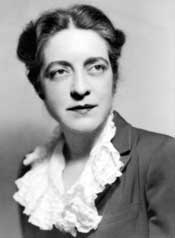
Back ميلبا فيليبس Arabic ميلبا فيليپس ARZ ملبا فیلیپس AZB মেনবা নিউওয়েল ফিলিপস Bengali/Bangla Melba Phillips German ملبا فیلیپس Persian Melba Phillips French מלבה פיליפס HE Melba Phillips ID მელბა ფილიპსი Georgian
Melba Newell Phillips | |
|---|---|
 | |
| Born | February 1, 1907 |
| Died | November 8, 2004 (aged 97) |
| Alma mater | Oakland City University Battle Creek College University of California, Berkeley |
| Awards | Oersted Medal (1974) |
| Scientific career | |
| Institutions | Brooklyn College University of Minnesota Washington University University of Chicago |
| Doctoral advisor | J. Robert Oppenheimer |
Melba Newell Phillips (February 1, 1907 – November 8, 2004) was an American physicist and a pioneer science educator. One of the first doctoral students of J. Robert Oppenheimer at the University of California, Berkeley, Phillips completed her PhD in 1933, a time when few women could pursue careers in science. In 1935, Oppenheimer and Phillips published[1] their description of the Oppenheimer–Phillips process, an early contribution to nuclear physics that explained the behavior of accelerated nuclei of radioactive hydrogen atoms. Phillips was also known for her refusal to cooperate with a U.S. Senate judiciary subcommittee's investigation on internal security during the McCarthy era which led to her dismissal from her professorship at Brooklyn College, where she was a professor of science from 1938 until 1952. (The college publicly and personally apologized to Phillips for the dismissal in 1987.)
Phillips also taught at the University of Minnesota (1941–44) and served as associate director of a teacher-training institute at Washington University in St. Louis (1957–62) before joining the faculty at the University of Chicago (1962–72) as a professor of physics. During her retirement years, Phillips was a visiting professor at Stony Brook University (1972–75) and taught at the University of Science and Technology of China, Chinese Academy of Science (1980) in Beijing. Phillips was a fellow of the American Physical Society and the American Association for the Advancement of Science. In addition to teaching, Phillips co-authored science textbooks and was active in the American Association of Physics Teachers. In 1981, the AAPT established the Melba Newell Phillips Medal in her honor to recognize outstanding service to the organization.
- ^ Oppenheimer, J. R.; Phillips, M. (15 September 1935). "Note on the Transmutation Function for Deuterons". Phys. Rev. 48 (6): 500–2. Bibcode:1935PhRv...48..500O. doi:10.1103/PhysRev.48.500.